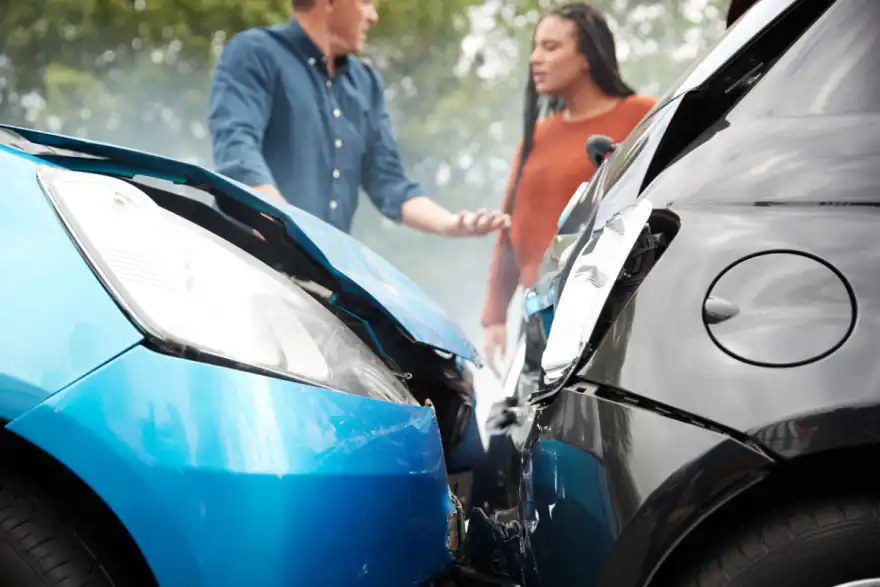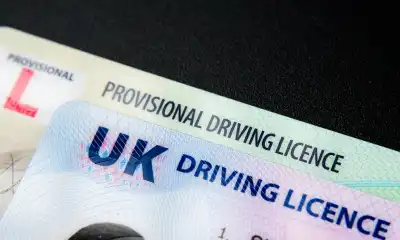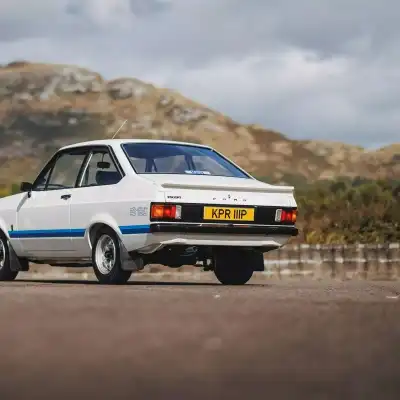
Although car crashes are, understandably, a subject that none of us want to think about, let alone talk about, it's essential to be prepared.
Unfortunate events can happen to any person, regardless of how careful or experienced you are as a driver.
A car accident will likely at least cause some damage to your vehicle. It could also cause injuries to yourself or others – and there could be legal consequences if you don't correctly handle the inevitable admin tasks.
That is why it’s important to know what to do if you have a car accident – and how to avoid common mistakes that could make things worse.
Here is our best practice guide for what to do.
Stop and check for injuries
First, you should ensure your vehicle is stopped as soon as possible, preferably in a safe place away from traffic.
Of course, depending on the nature of the collision, it may be undrivable and impossible to pull it over to the side of the road. But always do so if the car can be moved a few extra metres.
In any event, you must not drive off from, or get out and leave the scene of an accident. It is against the law, no matter how minor it is or who is at fault.
Failing to stop is a serious offence which could leave you facing a fine of up to £5,000, penalty points on your licence, or even up to six months imprisonment.
Think Safety
Next, turn off your engine and switch your hazard lights on to alert road users.
Check yourself and any passengers for injuries, and if anyone is hurt, call 999. Or, if you’re on a motorway, use a roadside SOS phone if anyone needs medical attention.
You should also check the other vehicles involved in the accident and offer help if you can.
Never move someone seriously injured, as this could cause further harm.
If you have an accident on a motorway or dual carriageway, only leave the car if it is safe. And if you’re parked on the hard shoulder and, once out of the vehicle, stay behind the barrier so you're out of harm's way.
If your car ends up in a live lane and you can’t move it to the left side of the carriageway, stay in the vehicle with your seat belt and hazard lights on. Then, get your mobile phone and call 999 immediately.
Knowing your approximate location could save vital minutes and seconds, too. So it's worth having a map app that can identify your location quickly.
Exchange details and report the accident
Once you've confirmed that everyone is safe, you should swap details with the other drivers involved in the accident.
You should provide your name, address, car registration number, and insurance details and ask them for the same information.
It is also a good idea to note down the make, model, and colour of their vehicles and any damage or injuries they have.
If there are any witnesses, you should ask for their names and contact details as well. Why? Well, this could prove vital in evidencing who was at fault, especially if there is no dashcam footage available.
You should also report the accident to the police within 24 hours unless they are already at the scene. You must do this if anyone is injured, the road is blocked, you suspect the other motorist is under the influence of drugs or alcohol, or if you think the accident was caused deliberately.
After reporting the matter, you will be given a reference number, which you’ll need for your insurance claim.
Collect evidence and don’t admit fault
Collecting as much evidence as possible at the accident scene is a good idea, as this could help you with your insurance claim or legal case.
You should take photos or videos of the vehicles, the road, the weather, and skid marks or debris.
You should also make a sketch or write a description of how the accident happened and note down the time, date, and location.
If it was your fault, it can be tempting to be ultra-honest and nice about it. But one thing you should not do is to apologise or admit fault for the crash, even if you reckon you are to blame.
This could be used against you later and, in certain circumstances, invalidate your insurance claim or legal defence.
You should also avoid getting into an argument or a fight with the other driver, which could escalate the situation and lead to further trouble. Instead, you should remain calm and polite and cooperate with the authorities.
If someone becomes aggressive towards you, do what is necessary to keep yourself safe. This could mean remaining in your vehicle if it’s safe to do so or even flagging down other motorists if the situation deteriorates.
Nothing is more important than your immediate safety. So, in such circumstances, it may be justifiable to move a distance away from the scene while you call the police for assistance.
However, if you do this, make sure that you report the other driver’s aggression to the police when they arrive. Why? Well, this will protect you and avoid accusations that you have attempted to flee the scene.
Contact your insurer and seek legal advice
The final step you should take after an accident is to contact your insurer as soon as possible and inform them of what happened.
Depending on your level of cover, your insurer will usually provide recovery assistance from the accident scene if your car isn't driveable.
You should give your insurer all the details and evidence you have collected and follow their instructions on proceeding with your claim.
You should also check your policy to see what cover you have, and what excess you must pay.
Depending on the severity and circumstances of the accident, you may also need to seek legal advice, especially if you are facing criminal charges or want to claim compensation for your injuries or losses.
If you do need legal support, look for a solicitor specialising in motoring law who can represent you in court or negotiate a settlement. You may be able to get free or low-cost legal help, depending on your income and situation.
It is worth checking whether you have legal cover included in your car insurance, too, as this could reclaim losses that wouldn’t otherwise be covered by your insurance, including legal fees.
It is also worth noting at this juncture that Regit offers 100% free Accident Assist if you have a Regit account.
If you've been in an accident that wasn't your doing, you’ll get free vehicle recovery, a like-for-like replacement vehicle, and manufacturer-approved repair. This can all be sorted using a 24/7 helpline, and it won’t affect your claims, and there’s no insurance excess payment, either.
Conclusion
Having a car accident can be a traumatic experience, but knowing what to do and what not to do can make a big difference to your stress levels.
By following these steps, you can ensure your safety, protect your rights, and minimise the accident's impact on your life.
Remember: prevention is better than a cure, so always drive carefully and responsibly and follow the rules of the road.



